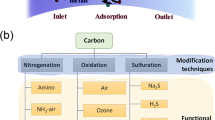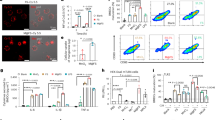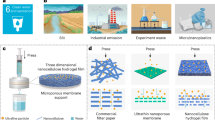Abstract
PRE-TREATMENT of Seitz-type filters with serum or with digest broth will reduce, to some extent, the often serious losses of virus caused by adsorption during filtration. Solutions of gelatin have been used recently instead of serum or broth with the same object in view. Although certain advantages are claimed for the use of gelatin, for example that most samples are antigenically inert, experience has shown that losses during filtration through asbestos filters treated with this protein substance are not uniformly negligible.
This is a preview of subscription content, access via your institution
Access options
Subscribe to this journal
Receive 51 print issues and online access
$199.00 per year
only $3.90 per issue
Buy this article
- Purchase on Springer Link
- Instant access to full article PDF
Prices may be subject to local taxes which are calculated during checkout
Similar content being viewed by others
References
Skinner, H. H., and Bradish, C. J., J. Gen. Microbiol., 10, 377 (1954).
Edsall, J. T., The Proteins, edit. by Neurath and Bailey (Academic Press, New York, 1953).
Author information
Authors and Affiliations
Rights and permissions
About this article
Cite this article
HYSLOP, N. A Method of treating Asbestos Filter Pads for Virus Filtration. Nature 191, 305–307 (1961). https://doi.org/10.1038/191305b0
Issue Date:
DOI: https://doi.org/10.1038/191305b0
Comments
By submitting a comment you agree to abide by our Terms and Community Guidelines. If you find something abusive or that does not comply with our terms or guidelines please flag it as inappropriate.



